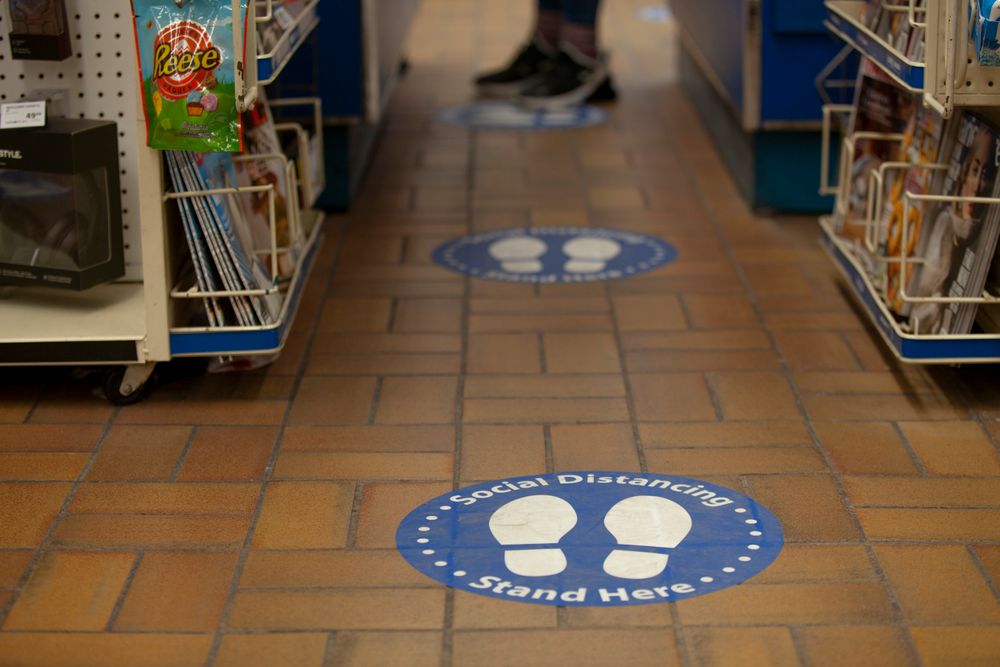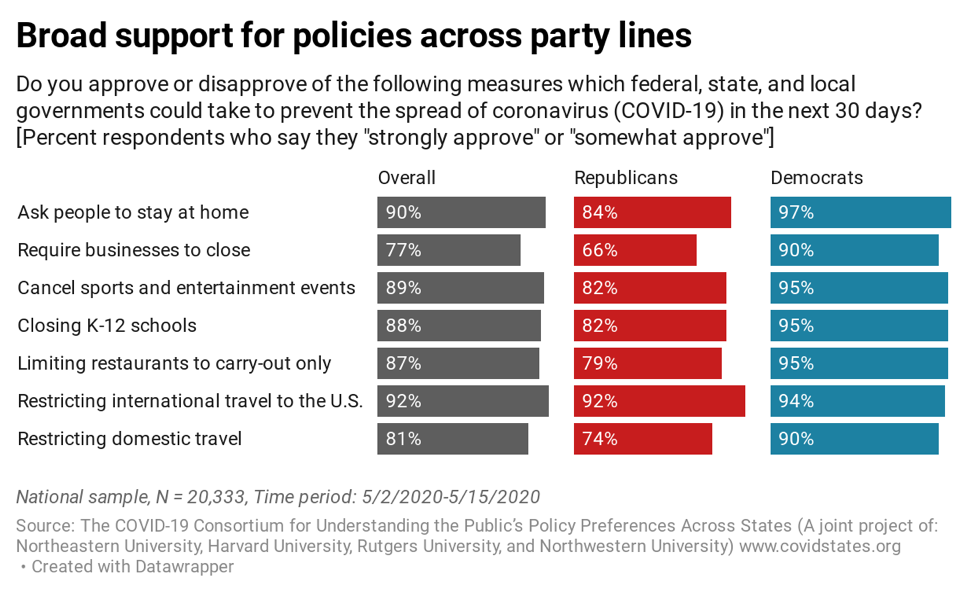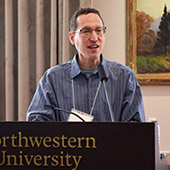Most Americans Prefer to Wait to Reopen the Country
But results shows partisan gaps emerging on most survey topics
Get all our news

A majority of Americans (60%) continue to prefer that the country wait at least four weeks before reopening, according to a new survey of more than 20,000 Americans between May 2 and 15. But partisan gaps on when to reopen are becoming more prominent. The numbers of Republicans preferring that the country reopen “immediately” jumped from 9% to 19% since the first wave of the survey.
"While there are some partisan divides, the vast majority of Americans support a slow process of re-opening, said IPR political scientist James Druckman, who worked on the nationwide survey. "Much more salient are the racial and economic disparities emerging in terms of consequences of the pandemic."
Druckman is one of the researchers involved in conducting the survey and analyzing data on "the state of the nation" as part of a consortium of four universities—Northwestern, Harvard, Northeastern, and Rutgers. The social scientists are investigating a variety of topics in addition to reopening that cover economic consequences, COVID-19 mitigation strategies, health concerns, trust in institutions and leaders, and voting by mail.

Highlights of their second report on the survey data include:
- Large majorities across the political spectrum continue to support aggressive measures to mitigate the virus such as staying at home (90%), closing business except for those deemed essential (77%), and closing K-12 schools (88%), among others.
- Respondents continue to approve of their governors’ performance in handing the pandemic more so (58%) than the president (42%).
- The economic impact of COVID-19 continues to be sharply divided by class. Lower-income and less-educated Americans are more likely to have lost their jobs, and much of this appears to stem from an inability to work from home. Nearly half of those with bachelor’s degrees were able to work from home while less than 20% of those with a high school degree were.
- Concerns about getting the novel coronavirus were higher among Hispanic (36%), African American (42%) and Asian American (36%) respondents than white ones (25%). Republicans were less worried about getting infected (24%) compared to 39% of Democrats, and partisan divides are also seen in how people comply with recommended behaviors like social distancing and whether they are able to receive healthcare.
- More than 90% of Americans declare they trust scientists, scientific instructions, doctors, and hospitals, while only around 50% declare that they trust politicians like President Donald Trump and the Democratic presidential nominee Joe Biden.
- Americans strongly favor (60%) efforts to make voting by mail easier, with notable partisan differences. In examining it by party, 80% of Democrats and 56% of Independents support it, while only 45% of Republicans do.
Read a copy of the complete report.

James Druckman is the Payson S. Wild Professor of Political Science and IPR Associate Director. Read the complete report.
Photo credits: GoToVan on Flickr, IPR (Druckman)
Published: May 22, 2020.


